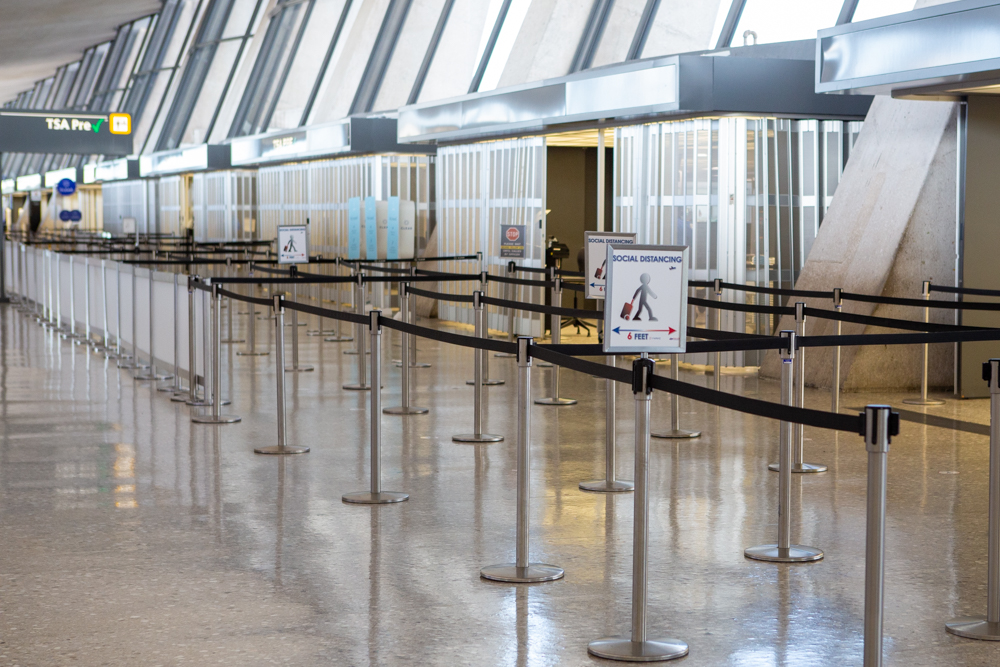By Nov. 3, thousands of Georgetown University students will have cast their ballots for the 2020 presidential election. In the meantime, ineligible students must sit on the sidelines, hoping their peers look out for their interests at the ballot box.
Georgetown’s international and undocumented students, many of whom grew up in the United States but are not citizens, cannot vote in the 2020 presidential election. F-1 and J-1 visa holders account for more than 5% of the undergraduate student body, but their situations, as well as those of undocumented students and green card holders, fall out of mainstream discourse as the election looms closer.
Elisabeth Koch (SFS ’24) grew up in Paris with French and German dual citizenship and is now living on campus with F-1 visa status. She worries her classmates may forget about issues like visa or residence status and that the United States’ COVID-19 pandemic response has global ramifications.

“I feel like Georgetown and American citizens probably don’t think about it,” Koch said in a Zoom interview with The Hoya.
Ira Tiasko (SFS ’23), who lives in Ukraine, and Angeli Nandwani (COL ’24), who lives in Panama, also cannot vote in the United States. Both students are active in the politics of their home countries, as well as in U.S. politics through personal activism and academics. Voting, however, is not an option.
“I hate it because I want to vote so much,” Nandwani said in a Zoom interview with The Hoya.
International students like Nandwani worry a President Donald Trump reelection will complicate their studies. In the past four years, the Trump administration has revised visa rules and tightened other immigration laws, hampering international students’ ability to study in the United States. Last month, the Department of Homeland Security introduced new rules limiting the length of stay for F-1 and J-1 visa holders, adding hurdles to the reapplication process. In July, the DHS introduced a rule banning students from taking online-only courses in the United States, only to rescind the rule following legal pressure from universities.
Koch, who relies on maintaining her F-1 visa to remain on campus during the virtual semester, said she has a lot at stake this election. She struggled to obtain her visa this summer because of the regulations imposed by the U.S. Immigration and Customs Enforcement in July 2020 and is unsure what will happen to her F-1 visa status as virtual instruction continues if Trump is reelected.
These same regulations meant Nandwani could not get a visa issued by the U.S. Embassy in Panama. She is still unsure whether she can make it to campus for future semesters and hopes her peers take the international students into account when they vote.
Tiasko, who just submitted a ballot for local Ukrainian elections, is especially concerned about changing U.S. foreign policy because, if Trump is reelected, she believes the already strained relations between Russia and Ukraine will deteriorate.
Despite their inability to vote Nov. 3, undocumented and international students still play a significant role in the U.S. political system by attending events, joining protests and signing petitions, according to Thomas Connelly (SFS’ 21), a director of GU Votes.
“[Undocumented and international students] are not immune to the effects of the presidential election,” Connelly said in an interview with The Hoya. “If they’re not able to get representation through a vote, they have to be able to represent themselves in other ways. We want to support that as best we can.”
Connelly identifies attending events, joining protests and signing petitions as alternative ways for ineligible Georgetown students to be involved.
Nandwani suggested starting debates with friends and family as a way to engage with the upcoming election.
“Why not? That’s all we can do, but I think that’s enough,” she said.
Ultimately, the best way for Georgetown’s eligible students to honor the silent voices of the community’s noncitizens is to vote.
“It is your civic duty to go and vote, because if you can, you’re going to change the history or change the politics,” Tiasko said.
Koch agreed.
“Please do it, because we’re depending on you.”





















Jack • Oct 30, 2020 at 7:52 pm
First, barred from the ballot box is disingenuous. Next, if you accept the risk of attending university or employment anywhere in the world, you accept the attendant risks, including non-representation in the local political process. Welcome to reality. Hoya Saxa. LJH. SFS ‘75